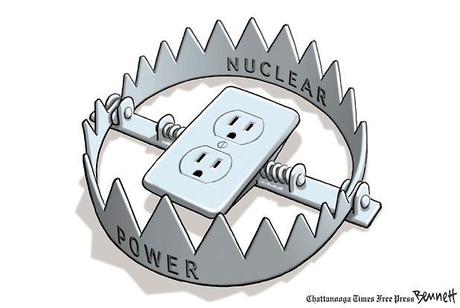 You don't have to be a nuclear physicist to understand that the worlds thirst for energy is growing and will continue to grow at a faster than normal rate. The issue faced globally is how to meet up with this energy demand while making sure tomorrow's generations are safe and still have an Earth to live on when the time comes. In this plight nuclear technology has often been proposed as a solution for a sustainable energy supply along side wind, geothermal, solar, and others.
You don't have to be a nuclear physicist to understand that the worlds thirst for energy is growing and will continue to grow at a faster than normal rate. The issue faced globally is how to meet up with this energy demand while making sure tomorrow's generations are safe and still have an Earth to live on when the time comes. In this plight nuclear technology has often been proposed as a solution for a sustainable energy supply along side wind, geothermal, solar, and others.The Intergovernmental Panel on Climate Change (IPCC) has put forward recommendations for nuclear power to be considered as a large scale sustainable source of energy. The definition for sustainability is clear as its meant to create and maintain the conditions under which humans and nature can exist in productive harmony, that permit fulfilling the social, economic and other requirements of present and future generations (reference).
Calling out nuclear power as a sustainable energy source will depend on how you look at it within these specific points:

1) Improvement in green house gas emissions intensity.
2) Continues existence of nuclear power insecurity.
3) Problematic radioactive waste disposal, and environmental impact during mining and operations.
4) Trust from the general public vis-a-vis the nuclear industry.
Joshua M. Pearce a researcher at the department of Materials Science & Engineering and Department of Electrical & Computer Engineering, Michigan Technological University published some conclusive points:
In order to be considered sustainable, the nuclear industry has to:
(i) radically improve the energy efficiency and greenhouse gas emissions intensity by improved technology and efficiency through the entire life cycle to prevent energy cannibalism during rapid growth;
(ii) eliminate nuclear insecurity to reduce the risks associated with nuclear power so that the free market can insure the nuclear industry without large public nuclear energy insurance subsidies;
(iii) eliminate all radioactive waste at the end of life and minimize the environmental impact during mining and operations;
(iv) the nuclear industry must regain public trust or face obsolescence as a steady stream of renewable energy technologies quickly improve both technical and economic performance.
Original Article by Joshua M. Pearce
Images:
Top: Energy Korea, Bottom: The conservation report
